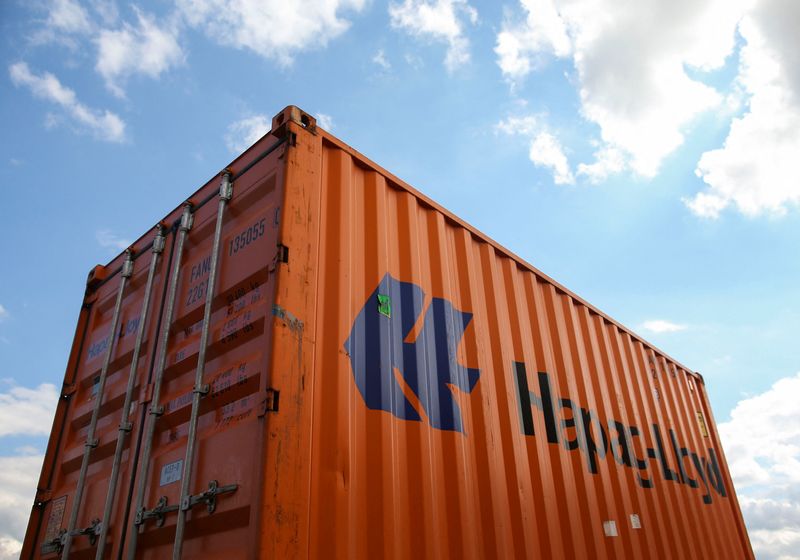Who is Kevin Hassett? Wolfe looks at the Trump ally tipped to become Fed Chair.
By Elke Ahlswede
BERLIN (Reuters) -Hapag-Lloyd will continue to divert its vessels around the Suez Canal for security reasons, a spokesperson for the German container shipper said on Friday, adding a further assessment would be made on Jan. 2.
Mitsui O.S.K. Lines and Nippon Yusen, Japan's largest shipping companies, also said their vessels with links to Israel were avoiding the Red Sea area. Both companies said they were monitoring the situation.
Shipping companies including Hapag-Lloyd and Denmark's Maersk earlier this month stopped using Red Sea routes and the Suez Canal after Yemen's Houthi militant group began targeting vessels, disrupting global trade.
Instead, they re-routed ships around Africa via the Cape of Good Hope to avoid attacks, charging customers extra fees and adding days or weeks to the time it takes to transport goods from Asia to Europe and to the east coast of North America.
The situation remains uncertain and shipping companies are taking different approaches.
Maersk is planning to sail almost all container vessels travelling between Asia and Europe through the Suez Canal from now on while diverting only a handful around Africa, a Reuters breakdown of the group's schedule showed on Thursday.
France's CMA CGM is also increasing the number of vessels it has travelling through the Suez Canal, it said on Tuesday.
Shares in Hapag Lloyd were up 1.1% on Friday. Shares in Maersk were up 1.8%. Shares in shipping companies have risen since the crisis began on expectations that longer routes will result in higher freight rates.
CMA CGM is among container lines to have introduced surcharges due to the re-routing of vessels, adding to rising costs for sea transport since the Houthis started targeting vessels.
Mediterranean Shipping Co's container ship United VIII was attacked while transiting the Red Sea, it said on Tuesday. The Houthis also on Tuesday claimed to have fired missiles at the vessel, without saying it was struck.
The Suez Canal is used by roughly one third of global container ship cargo, and re-directing ships around the southern tip of Africa is expected to cost up to $1 million extra in fuel for every round trip between Asia and Northern Europe.
